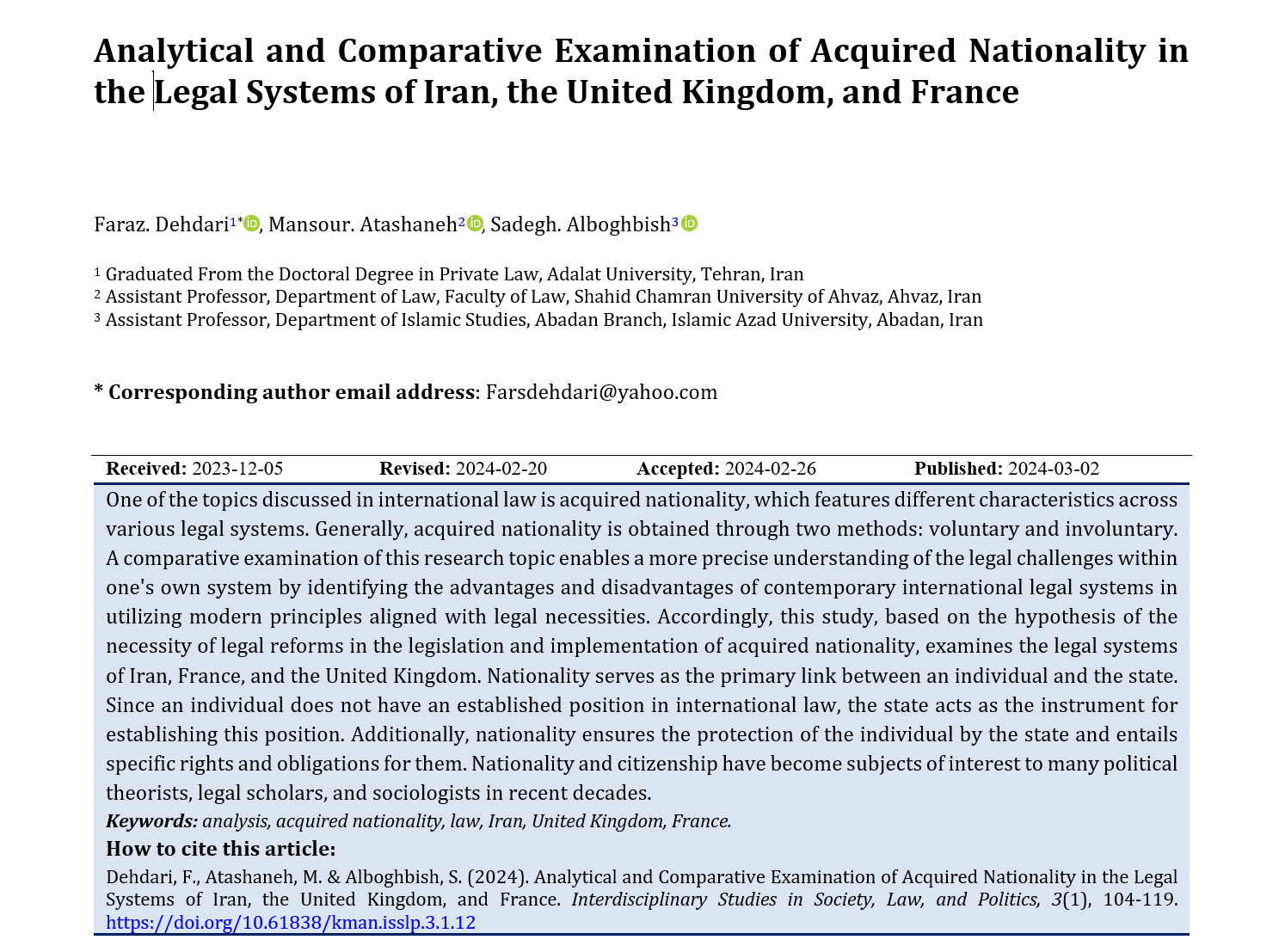Analytical and Comparative Examination of Acquired Nationality in the Legal Systems of Iran, the United Kingdom, and France
Keywords:
analysis, acquired nationality, law, Iran, United Kingdom, FranceAbstract
One of the topics discussed in international law is acquired nationality, which features different characteristics across various legal systems. Generally, acquired nationality is obtained through two methods: voluntary and involuntary. A comparative examination of this research topic enables a more precise understanding of the legal challenges within one's own system by identifying the advantages and disadvantages of contemporary international legal systems in utilizing modern principles aligned with legal necessities. Accordingly, this study, based on the hypothesis of the necessity of legal reforms in the legislation and implementation of acquired nationality, examines the legal systems of Iran, France, and the United Kingdom. Nationality serves as the primary link between an individual and the state. Since an individual does not have an established position in international law, the state acts as the instrument for establishing this position. Additionally, nationality ensures the protection of the individual by the state and entails specific rights and obligations for them. Nationality and citizenship have become subjects of interest to many political theorists, legal scholars, and sociologists in recent decades.
Downloads






